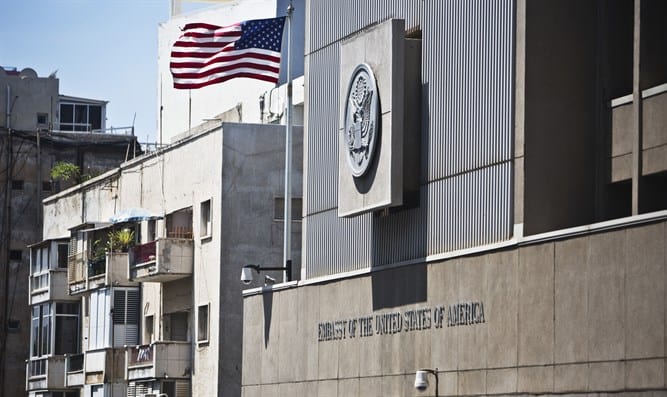THE Federal Government has rejected claims that it has retaliated against the United States by suspending five-year multiple-entry visas for American citizens, calling such reports “false and misleading.”
The clarification comes amid diplomatic tension after the U.S. Department of State announced a sweeping revision of its non-immigrant visa policy for several countries, including Nigeria.
Under the new directive, most Nigerians applying for U.S. visas particularly in the B1/B2 category (business and tourism) will now receive single-entry visas valid for only 90 days, replacing the long-standing two to five-year multiple-entry arrangements.
While the U.S. describes the changes as part of a broader “global reciprocity realignment,” the timing has fueled speculation of a diplomatic rift or retaliatory action by Washington. Some reports even alleged that Nigeria had first scaled back American visa privileges, prompting the U.S. response, a claim the Presidency has now firmly denied.
“President Bola Tinubu never suspended the five-year non-immigrant visa for U.S. citizens,” a statement from the Ministry of Foreign Affairs emphasized.
“In fact, one of his first directives was to uphold all bilateral agreements, including visa arrangements. Our foreign policy is built on mutual respect and reciprocity, not retaliation.”
Adding a new dimension to the issue, Minister of Foreign Affairs, Yusuf Tuggar, revealed that the United States is pressuring African nations, including Nigeria, to accept Venezuelan deportees and prison inmates as part of a broader immigration crackdown by the Donald Trump administration.
Speaking during an interview on Channels Television’s Politics Today, Tuggar stated that Nigeria has firmly rejected such proposals.
“It would be difficult for Nigeria to accept Venezuelan prisoners deported from the U.S.,” Tuggar said.
“We have enough challenges of our own and cannot become a dumping ground for foreign convicts. We already have over 230 million people to cater for.”
According to Tuggar, while the visa downgrade may have sparked concern, it should not be conflated with Nigeria’s non-cooperation on forced deportations, which he insists are separate matters. He said the tariff threats announced by Trump at the BRICS Summit in Brazil are likely part of broader geopolitical tensions, not necessarily targeted at Nigeria’s participation.
Nigeria’s current visa policy for Americans five-year, multiple-entry visas remains in effect, despite the availability of short-term e-visas (90-day single-entry) for visitors applying online.
Officials explained that the 90-day online visa is an optional, flexible entry route, often preferred for short-term visits or emergency travel. It does not represent a downgrade of existing policy toward U.S. nationals.
“The availability of a 90-day visa is not evidence of retaliation,” the Presidency clarified.
“It coexists with the five-year visa offered through embassies and consulates, as part of Nigeria’s drive to offer tiered, responsive visa options.”
This clarification comes as thousands of Nigerian travellers — including students, entrepreneurs, and professionals — brace for the impact of the new U.S. rules, which took effect on July 8, 2025.
For many, the shift represents a bureaucratic setback, with increased paperwork, higher fees, and tighter travel timelines.
“It’s not just a technicality,” said a Lagos-based immigration lawyer.
“This will affect students reapplying mid-semester, families planning visits, and business professionals relying on flexible travel.”
In response, Nigeria’s Ministry of Foreign Affairs confirmed it has opened diplomatic talks with the U.S. Embassy in Abuja to seek clarity on the policy shift and explore options to ease the strain on frequent travellers.
“Our engagement is rooted in diplomacy and fairness,” said one ministry official.
“We hope the U.S. will consider the real-world effects of this decision on legitimate Nigerian visitors.”
The U.S. State Department, in its justification, stated that the rule changes were made to align with U.S. visa reciprocity rules, which aim to ensure that U.S. citizens receive comparable treatment in other countries.
Notably, Cameroon and Ethiopia have also seen their visa terms revised recently, suggesting that the decision is not unique to Nigeria but part of a wider recalibration of U.S. immigration priorities.
The developments come just days after President Tinubu returned from the BRICS Summit in Rio de Janeiro, where he joined leaders of 11 member countries to discuss deeper economic and geopolitical cooperation outside of Western influence.
In an unexpected twist, former U.S. President Donald Trump, who is currently campaigning for a second term, responded by slapping an extra 10% tariff on imports from BRICS nations he deemed “anti-American,” including Nigeria, India, and China.
While the Nigerian government has downplayed the move, diplomatic watchers view the visa cut, tariff hike, and deportation pressure as part of a coordinated pushback by Washington against the growing clout of BRICS in global affairs.
The Nigerian government maintains that its doors remain open for dialogue, and it continues to offer long-term visa access to American citizens, consistent with the bilateral visa parity agreement signed in 2020.
At the same time, officials insist that national security, constitutional integrity, and the dignity of the Nigerian people will not be compromised whether in matters of immigration, trade, or diplomatic engagement.
“This government will continue to act in the national interest, not under pressure from foreign governments,” Tuggar reiterated.
“We want good relations with the U.S., but not at the expense of sovereignty or justice.”







